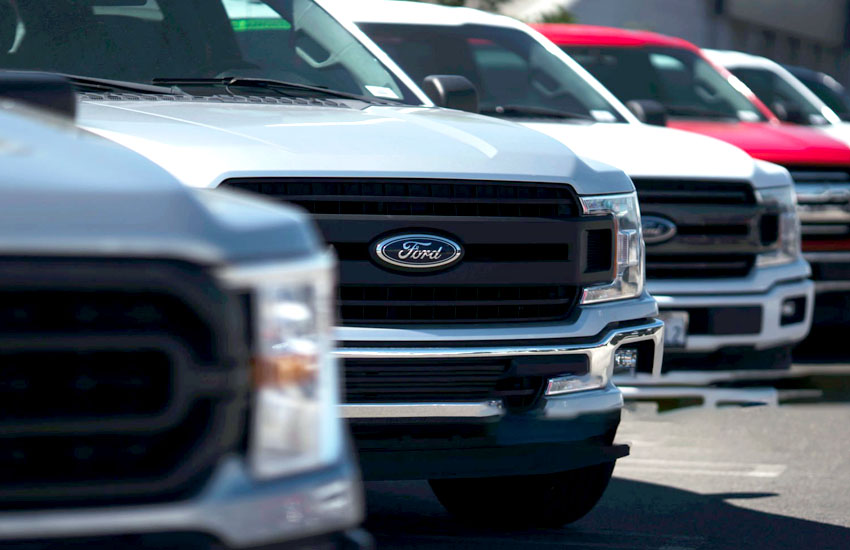When you buy a car, you often have to wait for it to arrive at the dealership. This wait can be short or long, depending on many things. In this blog post, we will talk about the time it takes for a car to get to the dealership and what affects this time.
First, the location of the car factory matters. If the factory is far away, it might take longer for the car to reach the dealership. Next, the type of car can also make a difference. Some cars are made quickly, while others take more time to build.
Shipping is another big factor. Cars can be shipped by truck, train, or boat. Each method has its own speed and possible delays. For example, bad weather can slow down a boat or a truck.
Also, the time of year can affect car delivery. During busy times, like holidays, it might take longer for your car to arrive. Lastly, special orders can take extra time. If you want a car with custom features, it might take longer to build and deliver.
In this article, we will look at the key things that affect how long it takes for a car to be delivered to a dealership. Knowing these things can help you understand why you might have to wait for your new car and how long that wait might be.

Manufacturing Process
Car delivery time to dealerships is influenced by several factors, including production volume, distance, logistics, and customization options. These considerations impact the manufacturing process, affecting the time it takes for cars to be delivered and ready for sale.
Understanding the manufacturing process of cars is essential in determining the time taken for car delivery to the dealership. The process involves various stages, including assembly line and quality checks, which are crucial for ensuring the production of high-quality vehicles.
Assembly Line
In the assembly line, cars are built through a sequential process with each station contributing to the final product. This efficient method allows for mass production, reducing the overall time required to manufacture a car. The assembly line involves tasks such as installing the engine, attaching the body components, and equipping the interior.
Moreover, by dividing the production into smaller tasks, manufacturers can ensure that every worker is specialized in their respective area, resulting in a streamlined process. This allows for greater precision and accuracy in building the vehicles, ultimately reducing the time taken for car delivery.
Quality Checks
Quality checks are an integral part of the manufacturing process to ensure that each car meets the highest standards before it reaches the dealership. These checks are conducted at various stages, including during and after the assembly line.
The quality checks involve thorough inspections of the car’s components, ensuring that they function properly and meet the required specifications. This includes examining the engine, testing electrical systems, checking the paint finish, and inspecting the interior for any defects.
| Key Components Checked | Criteria |
|---|---|
| Engine | Performance, efficiency, and emissions |
| Electrical Systems | Functionality and safety features |
| Paint Finish | Color consistency, smoothness, and durability |
| Interior | Fit and finish, comfort, and overall quality |
These quality checks are crucial in identifying any defects or issues that may arise during the manufacturing process. By ensuring that each car meets the required standards, manufacturers can maintain their reputation for producing reliable and high-quality vehicles.
Transportation
Transportation plays a crucial role in determining the time taken for car delivery to a dealership. Several factors come into play when considering the transportation aspect, including distance and mode of transportation.
Distance
The distance between the manufacturing facility and the dealership significantly impacts the time taken for car delivery. Longer distances often lead to extended delivery times, especially when multiple modes of transportation are involved.
Mode Of Transportation
The mode of transportation chosen for car delivery also affects the time taken. Different modes, such as rail, road, or sea, have varying transit times. Moreover, transportation may involve a combination of these modes, adding to the overall delivery duration.
Customization
Customization of car delivery time to the dealership involves careful consideration of various factors. These factors include distance, traffic, weather conditions, and special requests from the dealership, ensuring a smooth and efficient delivery process that is tailored to meet the dealership’s needs.
Special Orders
When it comes to car delivery to the dealership, customization plays a significant role in determining the time it takes for the vehicle to reach its final destination. Special orders are an integral part of customization, allowing customers to personalize their cars according to their preferences. Whether it’s a specific paint color, interior material, or even a unique feature, special orders require additional time for the car to be manufactured and delivered to the dealership.
Special orders are particularly appealing to buyers who have a distinct vision for their dream car. By placing a special order, customers can ensure that their vehicle stands out from the rest and reflects their individual style. However, it’s important to note that special orders may result in a longer delivery time compared to choosing a car from the dealership’s existing inventory.
Additional Features
In addition to special orders, the inclusion of additional features can also impact the time taken for car delivery. Car manufacturers offer a range of optional features and packages that customers can choose from to enhance their driving experience. These features can include cutting-edge technology, advanced safety systems, upgraded interior materials, or performance upgrades.
When a customer requests additional features for their car, the dealership needs to make arrangements with the manufacturer to incorporate these specifications during the production process. This can prolong the delivery time as manufacturers may need extra time to source and install the requested features.
It’s worth noting that certain popular or complex additional features may require even more time for delivery, as the manufacturer would need to ensure the availability of the required parts and carry out any necessary modifications to accommodate these features.
Customers looking to customize their cars by adding additional features should be prepared to wait slightly longer for their vehicles to arrive. However, the end result is a vehicle that meets their specific needs and offers a truly unique driving experience.
Logistics
When it comes to delivering cars to dealerships, logistics play a crucial role in determining how long the process will take. It involves various considerations and factors that need to be taken into account to ensure a smooth and timely delivery.
Inventory Management
Effective inventory management is essential for the efficient delivery of cars to dealerships. It involves keeping track of the various vehicles available, their specifications, and the demand for each model. By maintaining accurate inventory records, dealerships can streamline the ordering and delivery process, reducing the time taken for car delivery.
It’s important for dealerships to have a well-organized system for managing inventory, ensuring that they have the right vehicles in stock to meet customer demands.
By regularly monitoring inventory levels, dealerships can quickly identify when certain models are running low and take proactive steps to replenish stock. This is especially crucial for popular models that are in high demand.
Supply Chain
The supply chain plays a vital role in the delivery of cars to dealerships. It encompasses all the processes involved in getting the vehicles from manufacturers to the dealership lots. Optimizing the supply chain can significantly reduce the time taken for car delivery.
A well-managed supply chain involves efficient coordination between manufacturers, distributors, and dealerships. This includes factors such as transportation, warehousing, and order processing. By implementing streamlined processes and partnering with reliable logistics providers, dealerships can minimize delays and ensure timely car delivery.
Additionally, technology can also play a significant role in optimizing the supply chain. Advanced tracking systems and real-time visibility into shipments can help dealerships keep track of the progress of each vehicle throughout the delivery process. This enables them to identify any potential delays and take corrective actions to avoid disruptions.
Distribution Network
In the automotive industry, the distribution network plays a crucial role in the delivery of cars to dealerships. The distribution network encompasses various aspects such as the number of dealerships and the geographical coverage, which significantly impact the time taken for car delivery to the dealership.
Number Of Dealerships
The number of dealerships within a distribution network directly influences the time taken for car delivery. A higher number of dealerships means that the distribution network has to cater to more destinations, resulting in longer delivery times. Conversely, a lower number of dealerships allows for more streamlined logistics, potentially reducing the time required for car delivery.
Geographical Coverage
The geographical coverage of a distribution network also plays a pivotal role in determining the time taken for car delivery. Extensive geographical coverage requires the distribution network to traverse longer distances, which can lead to extended delivery periods. Conversely, a more localized geographical coverage can facilitate quicker and more efficient car deliveries to the respective dealerships.
Conclusion
In sum, the time taken for car delivery to a dealership depends on various factors such as location, shipping method, and potential delays. It’s essential for dealerships to consider these factors to streamline the delivery process and provide better customer service.
By understanding these considerations, dealerships can make informed decisions and manage customer expectations effectively.


